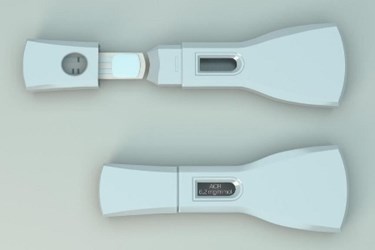Pregnancy Test + Nanotechnology = Fast, Cheap Kidney Failure Test

Scientists in the U.K. are developing a $15 device that could potentially diagnose kidney failure at home. The device combines the technology of a home pregnancy test with nanotechnology to provide fast results that could potentially link to a doctor’s office through mobile technology.
The device was designed by Bio Nano Consulting (BNC), a specialist contract research provider for the science and technology sectors. Called a quantitative electrochemical lateral flow assay (QELFA), the device uses nanoparticles to identify proteins in the urine stream and relays results to a centralized database where clinicians can track the progression of the disease, according to an Institution of Mechanical Engineers (IME) press release.
Currently, there is no device available that offers day-to-day monitoring for kidney disease, a condition that affects 20 million Americans per year, according to CDC estimates, and many cases remain undiagnosed.
The CDC recently launched the Kidney Disease Surveillance Project in collaboration with the University of California at San Francisco and the University of Michigan, remarking on the importance of continued collaborative research and early kidney disease detection.
Kidney failure can be fatal if not diagnosed early, and advanced cases often result in expensive dialysis treatments or kidney transplants. These treatments are intensive and represent a large financial burden to the healthcare system. The IME reports that chronic kidney failure costs the U.K.’s National Health Service (NHS) $2.2 billion per year.
“The QUELFA device is a brilliant example of what’s possible. Using old technology like a pregnancy tester and combining it with nanotechnology, you have a device which could not only diagnose a million people in the U.K. who are unaware they have kidney disease, but also help doctors effectively monitor those undergoing treatment. It could also save the NHS millions of pounds a year,” said Helen Meese, Head of Materials at the IME, in the press release.
The QUELFA was described in a recent report released by the IME detailing the need for broader government involvement and investment in nanotechnology that, according to Meese, could “revolutionize the way we live our lives.”
Earlier this year, BNC received a Smart Award from Innovate UK for the design of its device. The firm hopes this additional funding award will allow it to develop the device much more quickly.
A spokesman from BNC told Yahoo UK that there was no prototype for the device, but that a two-year development program was in place and the company expected to release the product within the next three to five years.
Image credit: Bio Nano Consulting
